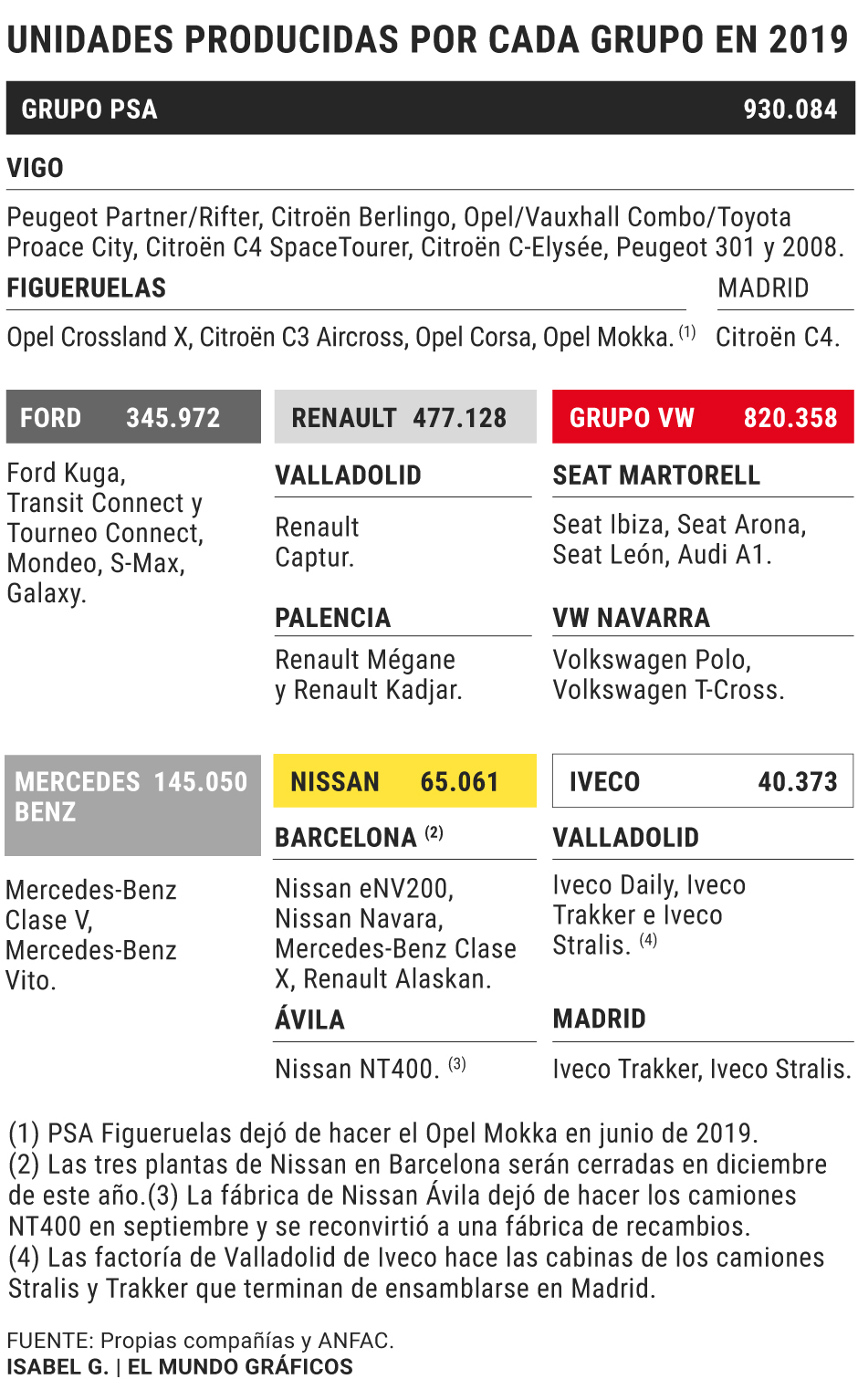The closure of Nissan in Barcelona has set off alarms in the automotive industry. Although it could be seen coming and although its 3,000 direct jobs and the 55,000 cars manufactured in 2019 are a drop of water in an industry that generates 9% of employment and 10% of the country's GDP.
The great risk is that it has opened the melon and conveys a negative message to the foreign plants that have systematically invested in Spain, despite the fact that the domestic market is equivalent to half the volume of the plants. Factories that, for the most part, have work for years, but will play it in the next round of international awards under parameters very different from those known.
The context
In 2019, 91.3 million vehicles were sold worldwide (-5% compared to the 2017 record), evidencing the overcapacity of production. In Europe, which absorbs 70% of the cars made in Spain, until April three million vehicles were registered (-40%). As demand will take time to recover, our factories may lose up to a quarter of volume in 2020.
Added to this weakness is the challenge of very low emission cars, particularly electric ones. The latter require up to 50% less labor, which can be compensated by making batteries or with new mobility services. The risks are that the industrial transition will outstrip demand - 100% battery-powered models will be only 7% of EU sales this year - and in the role of governments. France will help its brands, but asks to relocate and wants the country "to be the first manufacturer of clean cars in 2025." And Germany, for its part, concentrates 70% of the committed investments in electrification. Spain, where six battery models and several hybrids are assembled, 0.5%.
The factories
The 2.8 million vehicles produced in 2019 place us as the second European and ninth world power. Confirmed the goodbye of Nissan Barcelona -Avila and Cantabria, of parts, are still open- the most delicate situation is that of Iveco , with "oversized" templates in Madrid and Valladolid and after losing a new electric truck. Ford Valencia will invest 42 million in electrification, but has just approved an ERE for 350 people, will lose engine production in 2024 -an alternative will be sought- and since 2021, 40,000 Transit Connect for the US. In the future, complicated negotiations are expected.
The PSA Madrid will come out of a three-year ERTE after the summer, with the new C4 with an electric variant as its only asset. It is small and has been questioned in the past. The other two factories of the group (Vigo and Figueruelas) are at the top. They make cars for different brands, including Toyota, from different segments, also electric and several landed in 2019. With their volume they helped make PSA the production leader in our country.
As for the rest, Mercedes-Benz Vitoria , now with downward adjustments, has a good product. And those of Renault, which exclusively make the Captur - also its first plug-in hybrid - have been reinforced: the company's global adjustment will not touch them, although they will have to continue to gain competitiveness. Some say that its CEO since July, Luca de Meo , former Seat president, has had to do with it .
The latter will no longer lead the mini electric in VW , but Martorell is the plant with the most volume, with a lot of product (including Cupra) ahead and together with VW Navarra - which in 2021 will make three cars, never seen before - they form the pole of small group cars.
The recipes
The immediate ones: inject liquidity and a technologically neutral demand aid plan. France will launch one of 1,350 million . In the medium term: redesign of taxation, cheaper energy, logistics improvements and adapted labor formulas. Above all, there is an urgent need for a "country plan" that will bring out the entire value chain (including suppliers) and strengthen each of the challenges ahead.
In accordance with the criteria of The Trust Project
Know more- Madrid
- France
- Spain
- Seat
- Valladolid
- Europe
- Cantabria
- Navarre
- Germany
- GDP
- Motor industry
Macroeconomics Spain and the Mede, between a millionaire savings and the stigma of the bailout
Tourism Battle between countries to retain their national tourist
Health Fernando Simón ignored alerts from Germany and France about the Covid-19 at a European summit

